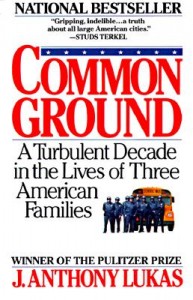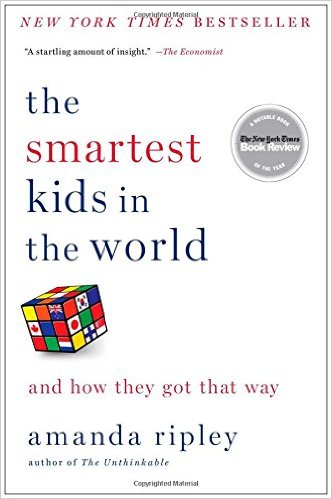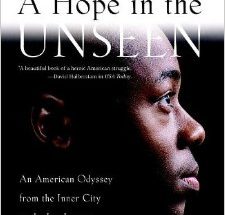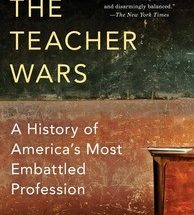
Anthony Lukas’s epic book Common Ground chronicles the history of Boston from 1968 to 1976, a time when efforts to desegregate the city’s public schools through forced busing brought to the surface deep seated racial tension. The book documents the history of Boston’s families and the evolution of the neighborhoods they inhabited, reaching as far back as 1619 when the first black slaves landed in Virginia. As Lukas explains, “For more than a decade the federal government’s legal guns were locked into place, facing south. Only in the late sixties and early seventies did they begin to swivel and train their barrels on the hitherto exempt cities of the North.” The same metaphor could be used to describe the attention of an entire nation at the end of the Civil Rights movement.
Lukas begins by describing the assassination of Martin Luther King Jr., from the perspective of three Boston residents: Alice McGoff, an Irish-American mother of seven living in Charleston; Collin Driver, a middle-class liberal white man who worked for Mayor Kevin White then Bill Cowan, a candidate for Attorney General; and Rachel Twymon, a black mother of six from Roxbury. The reader then follows each of these characters and their families as they navigate the new social landscape in Boston transformed by a new legal interpretation of school desegregation in Massachusetts. They are buffeted first by Massachusetts District Court Judge Arthur Garrity’s decision to reorganize the population of any school that was more than 50 percent white by forcing children to be bused to schools outside of their neighborhoods, then but the violent reactions many Bostonians had to the decision.
In April of 1965, King made Boston his first target for racial justice in the north. He warned against becoming a “nation of onlookers,” calling on Boston to reflect on its own subtle brand of racism.
As Lukas explains, people like Collin Driver took this call to heart. Driver, a graduate of Harvard Law School, and his wife attempted to structure their entire life around fighting for the cause. He gave up an offer at a prestigious law firm and signed on to work for a new, progressive mayor. They fixed up a home in the South End, helping start an early wave of gentrification there and always supported forced bussing. However, “living out the complications of urban liberalism,” as Bill Cowan put it, did not pay off. He was outraged when his son was bussed out of his already racially diverse school and eventually he and his family moved to a Boston suburb to escape the crime of the city.
Alice McGoff exemplifies the “townies” living in public housing who resented liberal suburbanites like the Drivers telling poor white families how to live. The McGoffs come across as equally territorial, loyal and hostile as their Irish ancestors has been centuries earlier. Alice and her daughter Lisa participate in protests against the integration of Charlestown High School and are openly disdainful of blacks. The McGoffs are not violent like many of their compatriots. They represent those who fear that their community, the only thing they can proudly call their own, is being taken from them.
Rachel Twymon, an active member of her church and a shop owner, has middleclass aspirations that are never quite realized during the course of the book. She is open to bussing until her daughter Cassandra is assigned to Charlestown High School. The bus that takes her there is escorted by police cars every day and arrives early so the “minority” students can get to class before anyone else shows up.
The disastrous situation that Lukas describes is clearly not one that he favors, but he offers no solutions. He simply asks his readers to see the complexity of his characters and leaves them with many questions. Should de facto segregation be illegal? Who should be responsible for eliminating it? Are all-black schools inherently worse?




As somebody who has read J. Anthony Lukas’s book “Common Ground–A Turbulent Decade in the Lives of Three American Families” more than once, I think that it’s an excellent book that, imho, has re-inforced my opinion that the only way to end segregation and to eliminate the need for mandatory school busing is to change society.